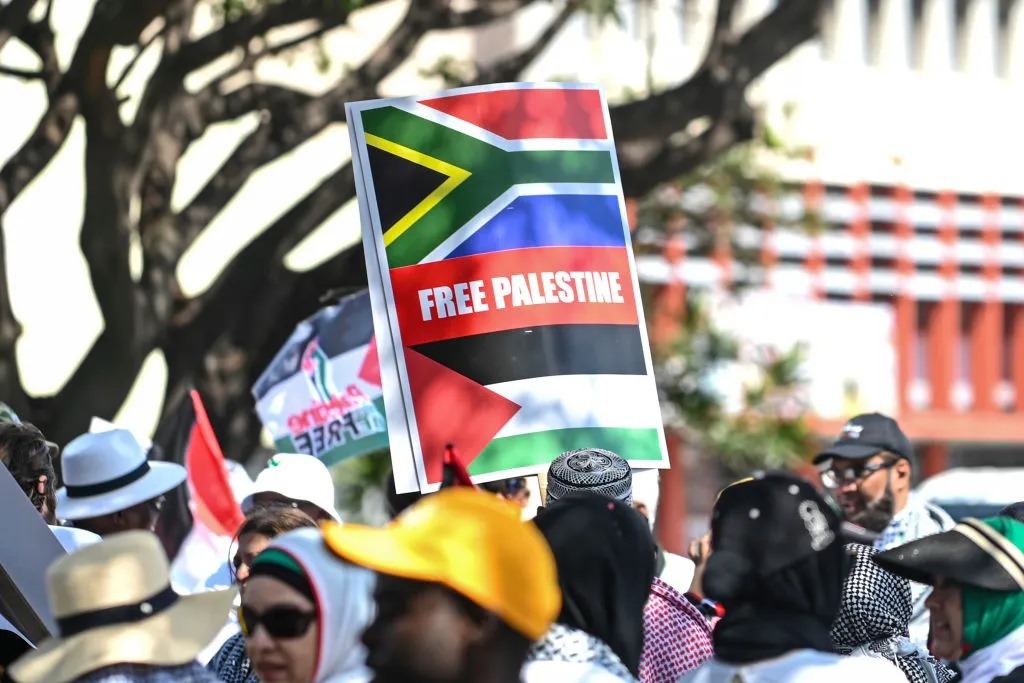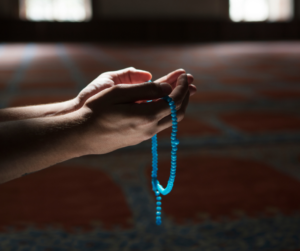
[Source - Getty Images]
By Imraan Buccus
Apartheid South Africa shared a cosy relationship with Israel, along with Taiwan and Chile, while the ANC shared ties of solidarity with the Palestinian Liberation Organisation (PLO), along with the Irish Republican Army (IRA). Along with the deep ties between the ANC and the PLO, leading to wider solidarity with Palestine, there is also a general solidarity with Palestine within South African society.
But while the Israeli ambassador has left and our Tel Aviv based diplomats have been recalled, there seems to be concern in some quarters that breaking ties with Israel will also impact our diplomatic ties with Palestine.
The decision by South Africa to end ties with Israel will be a complex geopolitical move with potential implications for regional dynamics and international relations. This decision is likely influenced by historical context, particularly South Africa’s own struggle against apartheid and the perceived parallels with the Palestinian struggle.
It is true that this decision could well strain diplomatic relations with the Western powers, something that could have economic consequences. Ending ties with Israel could impact trade, technology exchange, and other collaborations. Conversely, it may strengthen South Africa’s standing in certain international forums and align the nation with others that have taken similar stances. Many of the rising powers of the Global South, such as China and Brazil, will see the South African position as a rare demonstration of backbone, as will the leftwing governments in countries like Bolivia and Columbia.
But one thing for sure is that most South Africans will support the move. Outside of the small but vociferous Zionist bloc, which is opposed by many Jews, and the right-wing demagogues like Gayton McKenzie and Herman Mashaba, the vast bulk of the South African citizenry will welcome this move. The apartheid analogies between Israel and the old South African regime have always hung thick in the air, no matter how much hasbara spin the Netanyahu regime tries.
For most South Africans the historical parallels between the Black experience here in terms of forced removals, passes, detention without trial and so on resonate very powerfully with the Palestinian experience. So, when Minister Naledi Pandor announced the withdrawal of South Africa’s ambassador, it felt like history repeating in some profound way. Cue a collective release of activist catharsis on social media, even if the complexities mean full withdrawal seems unlikely.
Make no mistake, realpolitik is going to make this messy for the ANC government showing-a-clean-pair-of-heels diplomacy. We still have strong connections with Israel when it comes to trade, security, technology, and skills exchange. Untying all those knots to take a moral stand is not so simple.
Minister Pandor knows this. Her carefully worded statement about recalling “ambassadors” rather than severing full “diplomatic relations” shows she wants to appease anti-Israel public sentiment while limiting damage to relations behind the scenes. A delicate dance indeed.
But let’s step back and unpack why Israel still retains such symbolic importance to South African politics after all these years. There are the usual solidarity statements about standing with Palestinians in their struggle for freedom. That is certainly valid when you look at the violence and indignities meted out by Israel’s occupation regime.
But the bigger issue is what the Palestinian struggle represents in the South African political psyche. It connects directly back to our own unfinished business around healing apartheid’s divisions. The TRC was meant to lead us there, bringing truth then reconciliation. Yet decades later, the wound still feels raw, the scabs regularly picked open by sporadic racism flare ups.
So, Israel represents for some an externalisation of our inability to transcend the past. Focusing efforts on supporting Palestinians becomes a form of displacement, an indirect way to keep chipping away at stubborn racial attitudes and inequalities closer to home. Of course, the irony here is that our political disappointments at home must be laid squarely at the door of the ANC, and the ANC is able to recover some legitimacy by taking a position in support of the Palestinian people.
The utility of Israel as an effigy for internal national demons cannot be ignored. What better way for a flagging ANC to appeal to base and wider society than to trot out the old struggle pieties and take a swipe at Israel? This may help to rally the troops ahead of a crucial elective conference next month, and of course there is an election coming.
The complex psycho-political theatre hinted at here shows there are no easy answers or outcomes. Minister Pandor’s delicate dance will likely continue as she tries balancing morality and pragmatism along with the sheer opportunism of many of her colleagues in the ANC. But ultimately solidarity with Palestine should not be left in the hands of the ANC, a party that lacks any real grounding in principle.
People to people solidarity carries far more moral weight than the actions of the ANC, a party that has squandered the moral standing it once endured on the national and global stages. The solidarity movement here would be greatly strengthened if, for instance, the dock workers’ union refused to offload Israeli ships and retail workers refused to pack Israel goods onto supermarket shelves.
*Dr Buccus is editor of Al-Qalam


